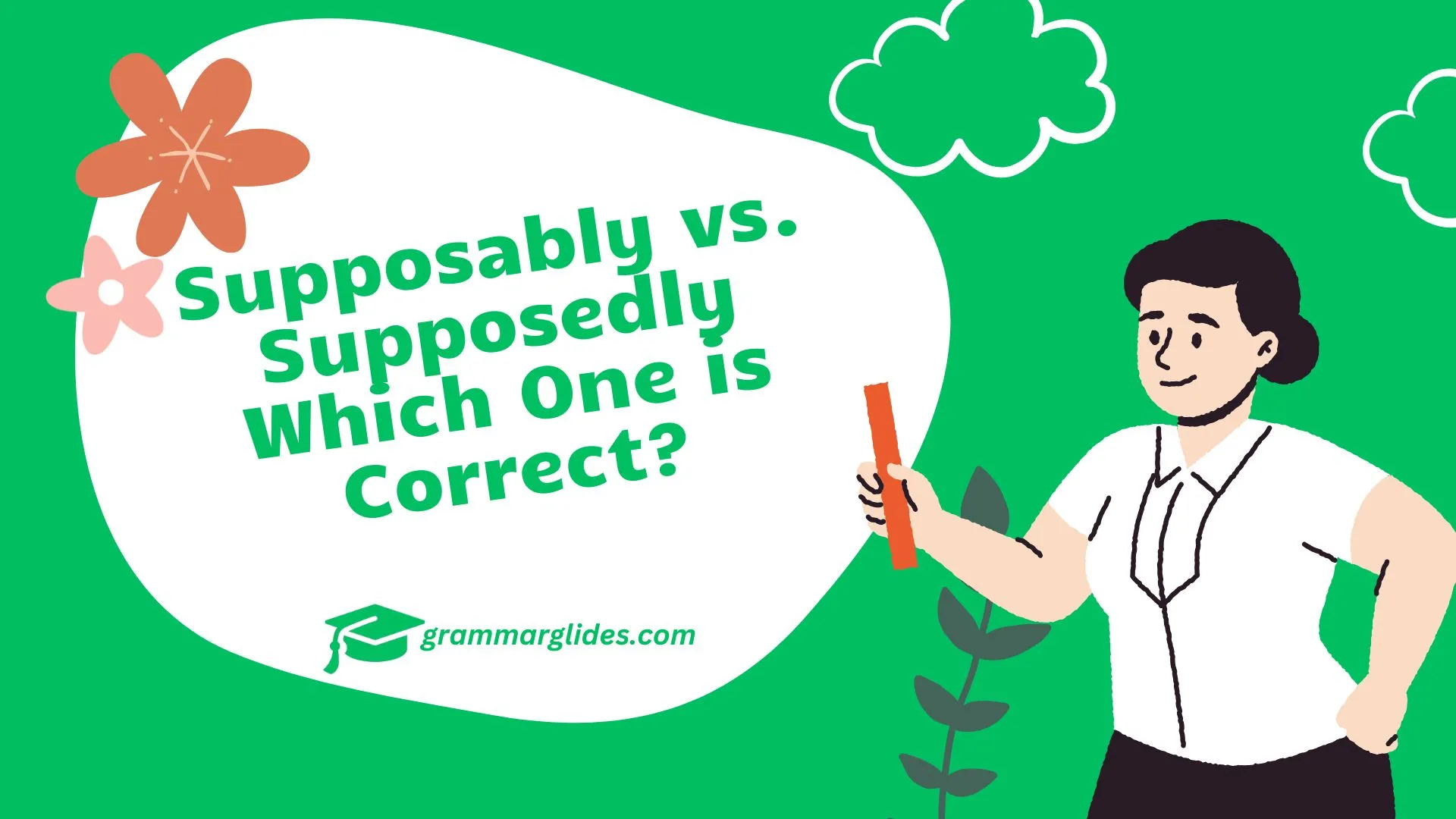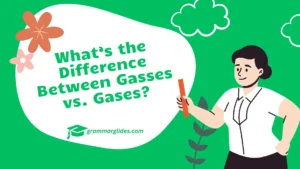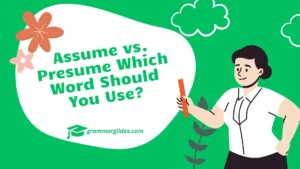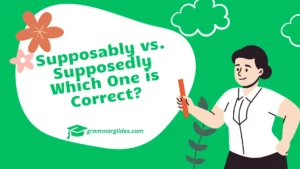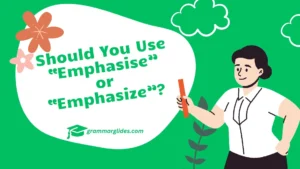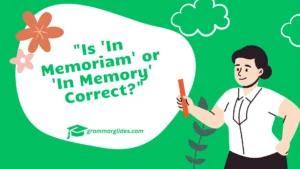“Supposedly is the correct term for assumed truths, while supposably is rarely used and often considered incorrect.“
The English language is filled with words that sound similar but have subtle differences in their meanings and usage. “Supposably” and “supposedly” are two such words that many people confuse, using them interchangeably without considering the correct context. However, understanding when and how to use each word can help you communicate more effectively.
If you’ve ever been unsure about which word to use, you’re not alone. This confusion is common, but with a little insight, you can start using “supposably” and “supposedly” correctly. In this article, we’ll dive into the differences between the two words, explore their historical roots, and help you understand when it’s appropriate to use each one.
By the end of this article, you’ll have a clear understanding of “supposably” and “supposedly,” making you more confident in your writing and speaking.
Overview of Supposably and Supposedly
“Supposably” and “supposedly” are both adverbs that describe something as being assumed or believed to be true, but they are used in different contexts. While “supposedly” is widely accepted in formal writing and conversation, “supposably” is less common and considered a nonstandard variation of the former. Though they might seem interchangeable, their usage has distinct rules that can affect the clarity and accuracy of your communication.
The Origin and Historical Usage of Supposably and Supposedly
Supposably: Etymology and Initial Usage
The word “supposably” has its roots in the word “suppose,” which comes from the Latin word “supponere” (to place under or assume). Initially, “supposably” was used to describe something that was capable of being assumed or supposed. However, over time, its usage became less common, and many consider it a nonstandard or incorrect form today.
Scenario: Imagine you’re reading an old 18th-century text. You might come across “supposably” in some works, reflecting its early use, but you’re less likely to encounter it in modern professional writing.
Supposedly: Etymology and Initial Usage
On the other hand, “supposedly” is the standard form, widely used in both formal and informal contexts. The word “supposedly” evolved similarly from the verb “suppose,” indicating something that is believed or assumed to be true, even if not confirmed. It’s the more accepted choice in modern English.
Scenario: When watching a news report, you might hear, “Supposedly, the event will take place tomorrow,” as this reflects the correct usage in standard communication.
Historical Context
Supposably’s Journey from the 1700s to Modern Recognition
Supposably first appeared in the English language in the 1700s and was used for centuries, particularly in the works of certain authors. However, as the language evolved, “supposedly” gradually gained preference and has since been recognized as the correct form.
Scenario: If you pick up a book written in the late 1800s, you might encounter “supposably,” but it would likely sound outdated in today’s context.
Early Usage: Documented Examples from the 1700s
Historically, “supposably” was more common in both literature and everyday speech. Many early writers used it regularly, which explains its persistence in some historical texts.
Scenario: A passage in an old novel could read, “Supposably, he is the heir to the estate,” but today, this would likely be corrected to “supposedly.”
Evolution: Changes in Meaning and Usage Over Centuries
Over the years, “supposedly” became the dominant form due to shifts in language norms. As language continued to evolve, people began to favor the smoother and more commonly accepted version, “supposedly.”
Chronicles of Supposedly: Beyond Just Allegations
Initial Usage: Historical Context and First Appearances
When “supposedly” first appeared, it was used to indicate something that was believed to be true, based on assumptions or reports, without verification. Over time, it became the go-to word for expressing doubt or uncertainty in what someone believes or has heard.
Scenario: You might hear someone say, “Supposedly, the concert was sold out,” where the word highlights that the speaker is uncertain about the claim.
Literary References: Notable Uses in Literature and Media
“Supposedly” has been used frequently in literature, movies, and media. Famous works of literature, both old and modern, use it to express beliefs, suspicions, or assumptions.
Scenario: In a detective novel, the protagonist might say, “Supposedly, the criminal was last seen near the warehouse.” This usage helps convey uncertainty or hearsay.
Modern Usage: How It’s Used Today in Various Contexts
Today, “supposedly” is commonly used in everyday speech, books, films, and media to express an assumption or belief that something is true. It’s often used to indicate that the information might not be confirmed or might be based on hearsay.
Scenario: A social media post might read, “Supposedly, the movie will be released next week,” signaling that the release date is not yet confirmed.
Defining Supposedly in Everyday Language
Common Definition: Standard Dictionary Definition
The dictionary defines “supposedly” as something that is believed to be true but may not be confirmed. It expresses a sense of uncertainty about the truth of the statement.
Example: “Supposedly, the restaurant is excellent, but I haven’t tried it myself.”
Nuances: Subtleties and Variations in Meaning
While “supposedly” is generally understood as expressing doubt or assumption, it can also imply that something is considered correct based on popular belief or consensus.
Example: “Supposedly, she’s the best candidate for the job, but we need to conduct interviews to confirm.”
Understanding the Correct Context for Supposably
Common Definition: Standard Dictionary Definition
“Supposably” is often incorrectly used in place of “supposedly,” though it suggests something that is possible or capable of being assumed.
Example: “Supposably, it could rain tomorrow, but it’s hard to tell.”
Appropriate Contexts: Situations Where “Supposably” Is Correctly Used
While “supposably” is not widely accepted in formal writing, it can still be used in informal speech to mean “capable of being supposed.” However, using “supposedly” in these contexts is generally a safer choice.
Example: “Supposably, the solution is simple, but no one seems to agree on it.”
The Realm of Possibility: Pinning Down Supposably
Concept of Possibility: How “Supposably” Relates to Possibility
“Supposably” refers to something that could be assumed or imagined. It expresses a possibility rather than a certainty, which is different from “supposedly,” which conveys an assumption or belief.
Example: “Supposably, the idea is feasible, but we need further analysis.”
Contextual Analysis: Detailed Look at Correct Contexts
The key difference between “supposably” and “supposedly” lies in the level of certainty. “Supposedly” indicates something that is assumed to be true, while “supposably” focuses more on what could be assumed or imagined.
Example: “Supposedly, he finished the project on time,” versus “Supposably, he could have finished it on time.”
Examples: Clear, Real-world Examples
- “Supposedly, the event was a huge success, but we didn’t receive official confirmation.”
- “Supposably, anyone could complete the task if they had the right resources.”
What’s the Difference Between “Tuff” and “Tough”?
Examining Real-world Examples of Supposably in Action
Literary References: Instances in Books and Articles
“Supposably” appears occasionally in books, but it’s rare. Writers use it when they want to convey a sense of possibility or uncertainty.
Media Usage: How It Appears in Movies, TV Shows, etc.
While “supposedly” dominates in movies and TV shows, “supposably” is occasionally used for stylistic reasons, though it’s not as common.
Analysis: Breakdown of Correct and Incorrect Usages
The primary difference between “supposably” and “supposedly” is that “supposedly” is the preferred, standard form. “Supposably” is seen as incorrect or less formal.
How to Distinguish Between Supposedly and Supposably
Key Differences: Detailed Comparison of Meanings and Contexts
“Supposedly” expresses an assumption or belief, while “supposably” refers to something that could be assumed or imagined.
| Aspect | Supposedly | Supposably |
| Meaning | Refers to something assumed to be true or likely based on belief or perception. | Refers to something that could be imagined or theoretically possible. |
| Usage | Commonly used in formal and informal contexts to convey something presumed or assumed. | Rarely used, often considered incorrect or nonstandard. |
| Formality | Standard and acceptable in both formal and informal settings. | Informal and not widely accepted in formal writing. |
| Frequency | Frequently used and widely recognized in everyday language. | Infrequently used, and often seen as a mistake when used in place of “supposedly.” |
| Examples | – She is supposedly the best candidate for the job.– Supposedly, it will rain tomorrow. | – Supposably, the event could be postponed.– The theory supposably explains the situation. |
| Contextual Suitability | Suitable for most situations where something is assumed to be true. | Suitable in very specific contexts, usually informal, and can sometimes cause confusion. |
| Grammatical Acceptance | Fully accepted in standard dictionaries and grammatical guidelines. | Rarely accepted in standard grammar rules, often labeled as incorrect. |
Common Mistakes: Typical Errors People Make
A common mistake is using “supposably” when “supposedly” is the more appropriate choice.
Tips and Tricks: Easy Ways to Remember Which to Use
To remember, think of “supposedly” as expressing what’s believed to be true and “supposably” as indicating something that could be imagined or assumed.
Modern Usage: Supposably and Supposedly in Current Language
Linguistic Trends: How Language Changes Over Time
Language is constantly evolving, and words like “supposably” may fade into obscurity, while “supposedly” remains the dominant form.
Current Acceptance: Dictionary and Usage Guides
“Supposedly” is widely accepted in both formal and informal settings, whereas “supposably” is often viewed as incorrect.
Future Predictions: Where These Words Are Heading
As language continues to evolve, “supposably” may become increasingly obsolete, with “supposedly” becoming the clear standard.
FAQs
1. Can “supposably” ever be used in formal writing?
While “supposably” is technically a word, it is generally not considered appropriate for formal writing. “Supposedly” is the correct and preferred form in all formal contexts.
2. Is “supposably” a common mistake in English?
Yes, many people mistakenly use “supposably” when they should be using “supposedly.” This error is often due to confusion between similar-sounding words.
3. Can “supposedly” and “supposably” be used interchangeably?
No, “supposedly” is the standard and correct form in most cases, while “supposably” is rarely used and considered nonstandard. It’s best to stick with “supposedly” to ensure clarity.
4. Why does “supposably” sound incorrect to many people?
“Supposably” sounds incorrect to many because it is less commonly used in modern English. Over time, “supposedly” has become the standard form, making “supposably” feel outdated or improper.
5. Are there any contexts where “supposably” is acceptable?
“Supposably” can be used in informal speech when referring to something that could be imagined or assumed. However, in most cases, “supposedly” is a more widely accepted and safer choice.
Wrapping Up
In conclusion, while “supposably” and “supposedly” may seem similar, they differ in their usage and acceptance. “Supposedly” is the correct and preferred form in both formal and informal settings, expressing something assumed to be true.
“Supposably,” on the other hand, is considered outdated and nonstandard, so it’s best to stick with “supposedly” for clarity and correctness. By understanding the difference, you can ensure your language remains clear and accurate in everyday conversations and professional writing.

Hi! I’m Ethan-Matthews, author of Grammar Glides. I create engaging content to make learning English grammar simple and enjoyable. Join me to master the nuances of the language with ease and confidence.
